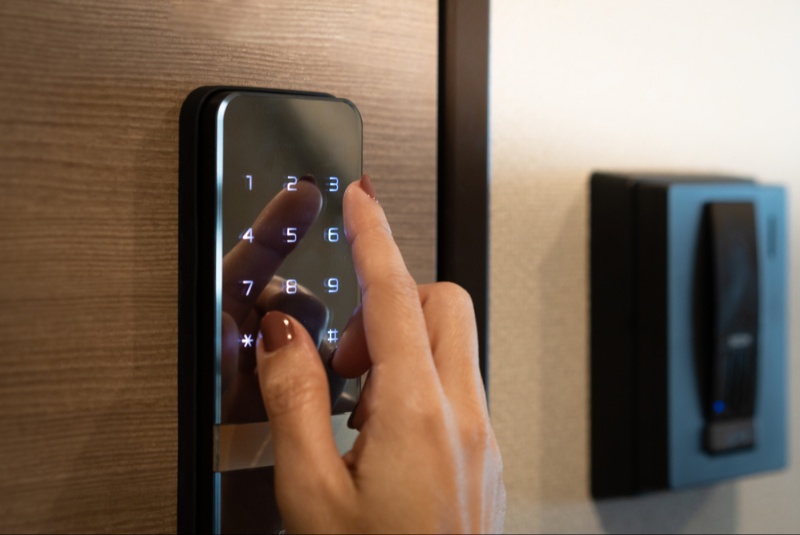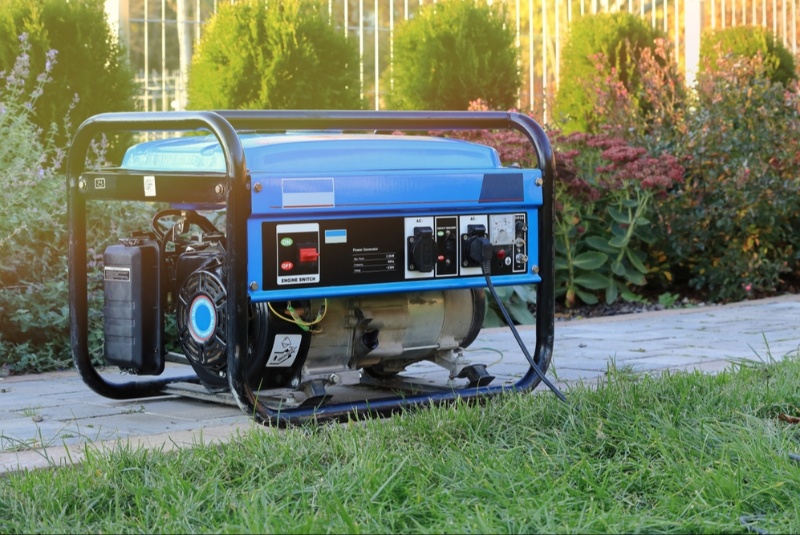Selecting the best smart lock for your home requires careful consideration of several factors, including security features, connectivity options, ease of use, and compatibility with your home's existing smart home ecosystem. Smart locks offer a blend of convenience and technology, allowing you to control access to your home remotely, monitor who enters and leaves, and even integrate with other smart home devices for a seamless experience. This guide will help you navigate the choices and find the smart lock that best fits your needs and lifestyle.
Understanding Smart Lock Technology
Smart locks utilize advanced technology to enhance the security and convenience of your home. They connect to your home's Wi-Fi network or a smart home hub, enabling you to lock and unlock your door with a smartphone app, voice commands, or even biometrics. Understanding the different technologies used in smart locks, such as Bluetooth, Z-Wave, or Wi-Fi, is crucial in selecting a device that integrates smoothly with your existing smart home setup. Each technology has its pros and cons, affecting the lock's range, security, and compatibility with other devices.
Evaluating Security Features
The primary purpose of a smart lock is to secure your home, so evaluating its security features is paramount. Look for locks with robust encryption methods to protect against hacking, as well as built-in alarm systems that alert you to potential security breaches. Some smart locks also offer the ability to generate temporary keys or access codes, which is ideal for granting temporary access to guests or service providers without compromising your home's security.
Considering Connectivity and Compatibility
Connectivity is a key factor in choosing a smart lock, as it determines how well the lock will integrate with your other smart home devices. Compatibility with platforms like Apple HomeKit, Google Assistant, and Amazon Alexa allows for voice control and the ability to set up routines or automations. Additionally, consider whether the smart lock requires a separate hub to connect to your network or if it can connect directly via Wi-Fi.

Assessing Installation and Ease of Use
The installation process and ease of use are important considerations when selecting a smart lock. Many smart locks are designed to be user-friendly, with simple installation processes that fit most standard doors without the need for extensive modifications. Consider whether you're comfortable installing the lock yourself or if you'll need professional installation. Additionally, the lock's interface, both on the device itself and through its accompanying app, should be intuitive and straightforward, allowing for easy management of access codes, monitoring of entry and exit logs, and customization of settings.
Battery Life and Maintenance
Smart locks are typically powered by batteries, so it's important to consider the battery life and maintenance requirements. Look for locks with long battery life and low-battery alerts to ensure your lock remains operational. Additionally, consider the ease of replacing the batteries and the availability of a backup key or alternative entry method in case of a power failure.
Design and Aesthetic Considerations
While functionality and security are paramount, the design and aesthetics of the smart lock are also worth considering. The lock should complement your home's style and be available in finishes that match your door hardware. Some smart locks offer interchangeable faceplates or covers, allowing you to customize the look to suit your home's aesthetic.
Price and Long-Term Value
When selecting a smart lock, considering the price and long-term value is essential. Smart locks vary widely in price, depending on their features, technology, and brand reputation. While it may be tempting to opt for a cheaper model, assessing the lock's durability, warranty, and the customer support offered by the manufacturer can ensure you're investing in a product that offers value over time. A higher initial cost might be justified by a longer lifespan, more robust security features, and better integration with your smart home ecosystem. Balancing your budget with the lock's quality and features will help you choose a smart lock that provides both security and value in the long run.
User Reviews and Community Feedback
Before making a final decision on a smart lock, reading user reviews and seeking community feedback can be invaluable. Reviews from current users can offer insights into the lock's performance, reliability, and the real-world issues or benefits that might not be evident from the product description alone. Community forums, social media groups dedicated to smart home technology, and review websites are great resources for finding honest feedback. Pay attention to comments about the lock's ease of use, installation challenges, compatibility with other devices, and the responsiveness of customer support. This information can guide you to a smart lock that has a proven track record of satisfying customers' needs and expectations.
Selecting the best smart lock for your home involves a careful balance of security, connectivity, ease of use, and design considerations. By understanding the technology behind smart locks, evaluating their security features, and considering their compatibility with your smart home ecosystem, you can make an informed decision that enhances the convenience and security of your home. Remember to also consider installation requirements, battery life, and the lock's design to ensure it meets all your needs and preferences.




